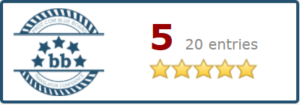Netiquette: how to behave online
Have you ever heard of the term netiquette? This portmanteau neatly combines the words network and etiquette and refers to how we should behave online. There are even Netiquette Guidelines, less commonly known as RFC 1855 and published in 1995, which set out all the rules to be followed on the world wide web to improve online communication, which sometimes seems more like organised chaos.
Here we have compiled a brief summary of the most important rules to follow:
– Capitals: should not be used to write entire words or sentences as it gives the impression of shouting in a disrespectful manner;
– Title: always choose a concise title which allows the reader to immediately understand the ideas behind main text;
– Avoid writing too much or barbed/aggressive texts: always write using clear and concise language in a polite manner, even when countering an argument or expressing a diverse opinion to that of the reader. It is also recommended to wrap the text in order to make it readable on any computer or any mobile device.
– Syntax/spelling/punctuation errors: try to avoid making basic errors (reading the text again helps – take our word for it) and at the same time do not rudely berate someone if they have committed such errors in a way as to make them feel stupid or ignorant.
– Privacy: never publish texts or images from other sources without citing the source (e.g. publishing the link) nor should you publish sensitive data, photos or contents of an email or other message without the author’s consent.
– Emoticons: use the so-called smileys sparingly, whilst on one hand they can be used to lighten the language used on social media, they can easily cause misunderstandings or lower the register too much.
Remember… verba volant, scripta manent!





Leave a Reply
Want to join the discussion?Feel free to contribute!